
Four teams emerged victorious from the two-day hackathon in Seoul, South Korea, this September as part of the APAC Hackathon tour. The in-person weekend event dubbed a GAS Station, was the fourth of five leading up to the grand finale in Hong Kong. The two Excellence Prize winners from each GAS Station will compete for a portion of the final prize pool worth approximately US $1 million in rewards and support.
The Excellence Prize winners included magipop and SuperSquad, each walking away with $5,000 in GAS and $1,000 grants to travel to Hong Kong for the finale. The AWS Winners included EZSwap and Moonlight, each taking home $5,000 in prizes.
The finale, dubbed Neo Era, will occur at CyberPort in Hong Kong on Oct. 27 and 28. At the finale, participants can compete in one of five categories for a chance to win $10,000 and incubation support. The categories include DeFi and Payment; NFT and Gaming; AI, Social, and DAO; Infrastructure and Tooling; and General.
Participants may still enter projects online without visiting a GAS Station and be eligible for a grand prize. Online submissions are open until Oct. 20.
Excellence Winner: magipop
magipop is a DAO oriented toward supporting creators, built to enable content creators and give them a sense of belonging. The platform seeks to encourage emerging groups of creators to release content not for fame or repute but for the love of their craft. The term coined for this group of workers is the Passion Economy. Some figures project that 85% of all new jobs by 2030 will be in this economic field.
The platform’s founding team is distributed across China, the US, and the UK. Many of the founding members met as part of a collaborative experiment where approximately 100 creators came together to create a science fiction series, which was completed in less than three months.
The magipop DAO was established in mid-2022 by founders with a common curiosity in the metaverse and Web3. The community’s first initiative is Bubble Observer, a collaborative effort comprising 20 parallel stories written by the magipop founders.
The magipop website currently offers a “Playground” and tools for leveraging AI to generate content. The Playground serves as a place for creators to showcase their artwork. The generative AI tools for creators utilizes a chatbot to assist in developing a new image.
Looking forward, the team intends to build a dedicated module for co-created content, called Forge. Forge is a platform designed for creators and fans of popular intellectual property rights, games, and fiction. Key features will include an AI content generation system, a multi-user gamified experience for collaborative creation, and much more.
In a conversation with NNT, magipop founder Race Li said the team opted to build on the NeoVM and that the developers liked learning from others onsite. He said:
Excellent hackathon environment. During our participation in the hackathon, we communicated with the Neo core team. They provided sincere and effective help for the web3 environment and developers.
The design of the Neo blockchain itself is intelligent. Unlike other chains that mindlessly replicate Ethereum’s code, Neo has mechanism-level thinking in terms of management, efficiency, and governance. In addition, Neo is continuously developing and expanding more possibilities.
Ultimately, magipop aims to realize a new model that can be established at the convergence of AI-enabled creations and blockchain, where creators can build things that have meaning and purpose but reap the rewards from an economic market that values products built by those with such visions.
More information about magipop can be found at the link below:
https://link3.to/magipop
Excellence Winner: SuperSquad
SuperSquad (who submitted its project under the name EBCW) is a SocialFi dApp built with the goal of keeping users honest about healthy and positive habits they’d like to add to their lives. To do this, SuperSquad aims to provide a Web2-like experience by lessening the cognitive gap for new blockchain users. For example, the platform doesn’t require users to create a private wallet and store a seed phrase.
The SuperSquad team is based out of Seoul, SK. The founders of SuperSquad, Heejin Kim and Danbee No, met through Nonce, among Korea’s largest blockchain communities, and have worked together on a content creators DAO. Kim met the team’s front-end and smart contract developer, Seungeun (Tina) Lee, through Blockchain Valley, a blockchain club at Korea University.
SuperSquad is designed to establish direct economic incentives and shape real-world actions through a group deposit challenge system. The team hopes to attract mainstream users beyond Web3 with this lifestyle-based approach and was inspired to build upon the group deposit system after running a previous DAO that catered toward writers. To participate in the DAO, members had to deposit some crypto, submit a blog post weekly, and provide feedback on other members’ posts. They’d lose a portion of their deposit if they didn’t remain active.
The SuperSquad dApp uses a proof of routine, which requires users to deposit USDC to participate in ongoing challenges with other active participants. That deposit is then locked for a pre-determined amount of time, and the assets are deployed to DeFi protocols (i.e., Aave, Compound) during that lockup period. To verify that a human is completing the task, the user needs to solve a math problem whenever meeting a daily goal for the challenge.
If the users complete the task and all the milestones, they will receive the deposit back, with interest. If not, they could receive their initial deposit back minus penalties.
For example, if a user sets a target to wake up at 6 a.m. each weekday for three weeks, they will need to check in by 6 a.m. each day. If they complete the task, they’ll receive their group deposit back and interest earned from leveraging DeFi protocols. If the user checks in 80% of the time or more, they’ll receive 100% of their initial deposit. However, if the user fails to complete their task by any less (i.e., 79% or less of the predetermined timeline), they’ll receive the initial deposit minus a penalty for each failure.
For the APAC Hackathon, the team opted to build on the NeoEVM because of Lee’s experience with EVM contract development and the two-day time constraint of the Seoul GAS Station. SuperSquad intends to continue developing on NeoEVM but will pivot to NeoVM if the DeFi yields are attractive enough. As yield opportunities are a core component of SuperSquad, the team is mindful of DeFi activity on each L1 they look into building upon. In a conversation with NNT, No said:
My project has to utilize DeFi to boost yield, it is very important that MainNet’s have their own rich ecosystem. Not many MainNet’s are with those rich atmosphere and big chains have very low-yield for low-risk assets. However, the Neo DeFi ecosystem has high stability and high APRs, which is very helpful for our core concept of yield boosting.
Looking forward, the team intends to present a full prototype and test market at the APAC Hackathon finale in Hong Kong. It aims to begin product-market testing, and will gauge interest in fiat and cryptocurrency benchmarks of potential users. A demo of SuperSquad for the APAC Hackathon can be found here.
More information about SuperSquad can be found at the link below: https://medium.com/@supersquadchallenge/introducing-supersquad-1f9a356bb84e
AWS Winner: EZSwap
EZSwap is a non-custodial exchange protocol designed for video game-based NFT assets. The team started working on the project in Dec. 2022 and opted to build its solution for the Seoul GAS Station on the NeoEVM sidechain.
The platform was conceptualized by “Alex PF” and “KK,” out of the UK and US, respectively. Before collaborating on EZSwap, the duo was part of the team that built the X2Y2 Marketplace for trading, buying, and loaning NFTs. Their previous experience in the NFT space includes product design, marketing, business development, community management, UI/UX, and fundraising.
Driven to create a better market-making standard for gaming assets, the EZSwap team seeks to collaborate with onchain gaming entities and support multiple blockchain networks. The NFT-oriented DEX currently supports the Polygon, Ethereum, zkSync, Arbitrum, and Manta blockchains.
In a conversation with NNT, Alex spoke about how his time as an investment manager at Foresight Ven shaped his outlook on NFTs. He said, “I think gaming assets need a better mechanism for market making. That’s why I want to do a protocol for the games and improve the gaming asset liquidity to make game-based NFTs better.”
The DEX protocol aims to serve as a core piece of gaming infrastructure by providing composable NFT-focused DEX and automated market makers to enable in-game trading.
Ultimately, the team wants to attract games into its integrated ecosystems and enhance market-making to increase liquidity for NFT assets. The co-founder, Alex, noted that the team intends to continue integrating Neo N3 into its platform. He said, “The ecosystem gave us much support so that we can support the NeoEVM in a short amount of time. We are looking forward to the future development of gaming in the Neo ecosystem.”
The EZSwap team intends to integrate an art NFT launchpad alongside the gaming market. It believes a platform for artists and institutions can have an extensive reach into onboarding the next wave of Web3 users. The team’s roadmap lists support for new EVM chains in Q3 2023, and on operations and user growth in Q4 2023.
To learn more about EZSwap visit the link below:
https://ezswap.io/#/index
AWS Winner: Moonlight
The Moonlight platform is designed to enable the buying and selling of NFTs on platforms such as Kakao and Naver. Kakao is a mobile messaging application that allows users to communicate with one another at no cost. Naver is a search engine and platform that seeks to enable advanced technologies for small and medium-sized enterprises and creators alike. Both platforms are extremely popular in Korea.
The Seoul-based Moonlight team comprised Jongseok Kim, the founder and blockchain developer, Sieun Lim, back-end developer, and front-end developers Jeonghun Go and Seungjin Han.
The team was inspired to empower artists and increase income stability. Kim, Moonlight’s co-founder, said: “While perusing recent news, I came across an article detailing the challenges confronted by webtoon artists. As a devoted web toon enthusiast, I was compelled to seek solutions to these issues. In addition, I was motivated to establish an avenue for readers to actively contribute to the artistic endeavors.”
Using this example, Moonlight will allow artists to upload their webtoon content, issue an NFT embedded with an ownership stake, and stake the funds into the Moonlight sales pool. The Moonlight team wants to become a marketplace for webcomics that can attract creators, readers, and NFT lovers.
The team was attracted to build on Neo because of its longevity, multi-lingual support, and continued refinement of N3. The team built on the NeoVM and is most eager to leverage Neo’s digital identity solutions for assets on the Moonlight platform.
Looking forward, the Moonlight team intends to curate a DAO-centric community for webtoon NFT holders that will allow them to participate in governance. Kim said, “I sincerely hope to make even a modest contribution to crafting a world where everyone can realize their dreams.”
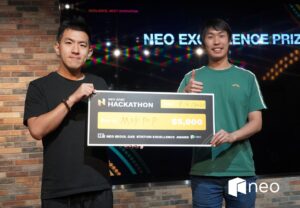
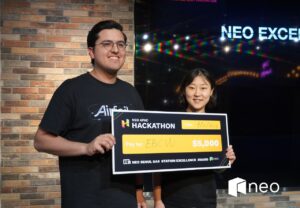
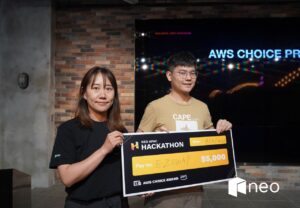
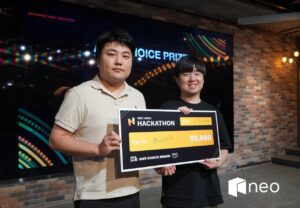





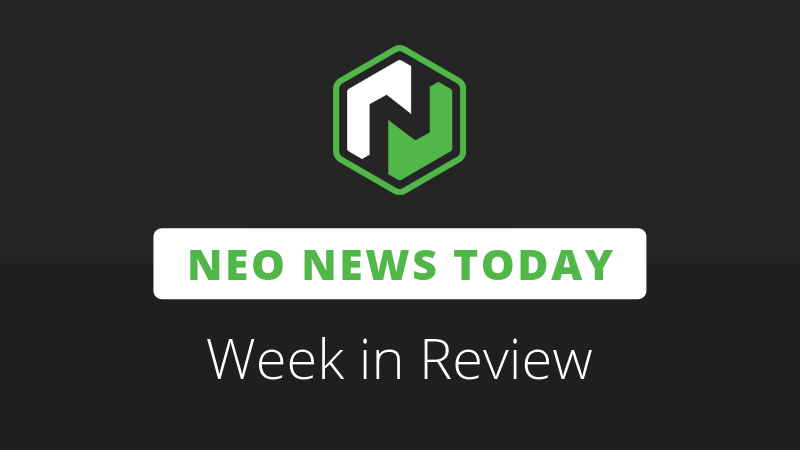
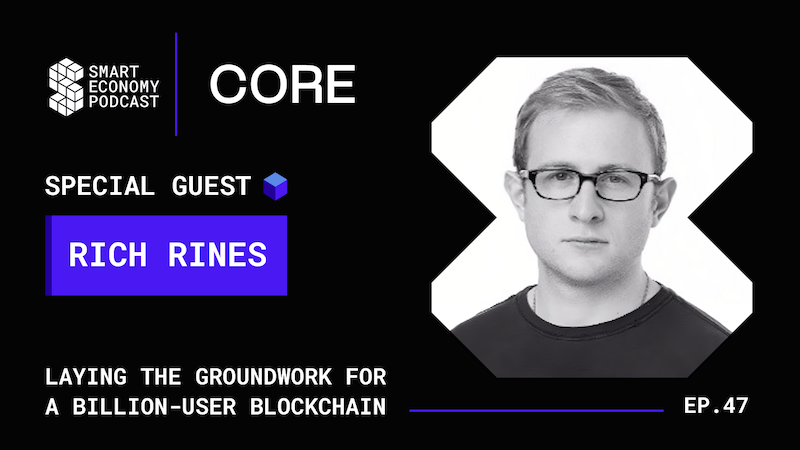
About The Author: Dylan Grabowski
Dylan is a reformed urban planner with a passion for covering the Neo ecosystem. His objective as a writer for Neo News Today is to report news in an objective, fact-based, non-sensational manner. When not behind a computer screen, he can be found in the mountains rock climbing. Find Dylan on Twitter (@GrabowskiDylan).
More posts by Dylan Grabowski